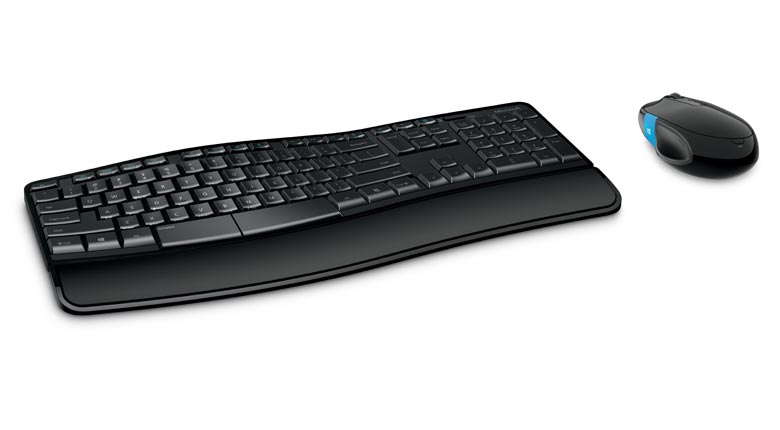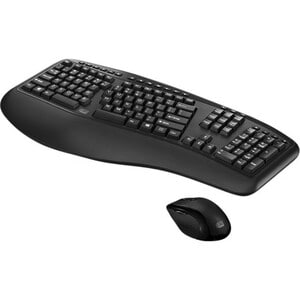
Over 3 million units had been sold by February 1998, when its successor, the Natural Keyboard Elite, was introduced. Microsoft soon asked Key Tronic to ramp up production to 100,000 per month in 1995, and the Natural Keyboard sold over 600,000 per month at its peak. The keyboard gained popularity quickly, exceeding Microsoft's forecast of 100,000 units sold by the end of 1994. The three Num Lock/Caps Lock/Scroll Lock status lights are arranged vertically between the two halves of the alphanumeric section.Īlthough it was not the first ergonomic keyboard, it was the first widely available sub-$100 offering.
#Microsoft ergonomic keyboard staples windows#
This keyboard also introduced three new keys purposed for Microsoft's upcoming operating system: two Windows logo keys ( ⊞ Win) between the Ctrl and Alt keys on each side, and a ≣ Menu key between the right Windows and Ctrl keys. Another innovation was the integrated wrist pad helping to ensure correct posture while sitting at the computer and further reducing strain on the neck, arms and wrists.

This key arrangement was ergonomically designed to prevent carpal tunnel syndrome and other repetitive strain injuries associated with typing for long periods of time. The keyboard uses a fixed-split design, with each half of the alphanumeric section separated, laterally rotated, and tilted upwards and down from the center of the keyboard. The Microswitch division of Honeywell, which was responsible for that company's keyboards and was acquired by Key Tronic in early 1994, is also credited with design input. It was designed for Microsoft by Ziba Design with assistance and manufacturing by Key Tronic.

The first generation of the Microsoft ergonomic keyboards, named the Natural Keyboard, was released in September 1994, designed for Microsoft Windows 95 and Novell Netware.
#Microsoft ergonomic keyboard staples pro#
^ Adds 19 hot keys, two of which are programmable using IntelliType Pro software.^ Nonstandard 2-column, 3-row layout columns (from left to right) are Home/ End/ Del and PgUp/ PgDn/ Ins.^ a b c d e Conventional 3-column, 2-row layout columns (from left to right) are Ins/ Del, Home/ End, and PgUp/ PgDn.^ a b Standard 101-key QWERTY keyboard layout with the addition of two Windows keys and a contextual menu key on the spacebar row.Split spacebar Alcantara-covered palm rest, aluminium top body part Numpad is a separate wireless unit split spacebar

Wireless using USB corded receiver, PS/2 via adapter

PS/2, USB (cord terminates in both types)į-Lock to toggle from standard software-defined Fn functions Designed by Ziba Design and manufactured by Key Tronic


 0 kommentar(er)
0 kommentar(er)
